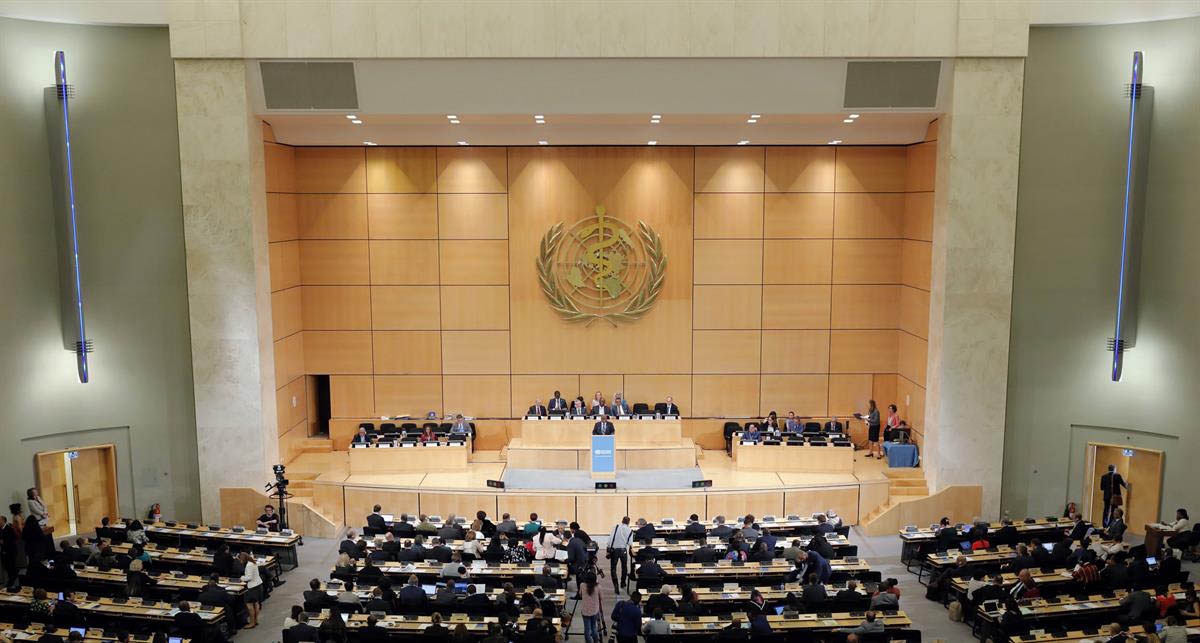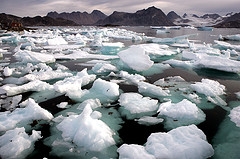
The World Health Assembly is no place for petty politics.
by Zhao Yong, Chargé d'affaires, a.i. of the Chinese Embassy in Canada
The coronavirus epidemic continues to rage around the world, and Omicron is constantly mutating. At the same time, geopolitical conflicts, climate change and other factors are at play, posing severe challenges to human well-being. As all of this unfolds, the 75th World Health Assembly, set to take place in Geneva from May 22 to 28, will focus on the world's public health priorities. The topics to be discussed will relate to the health and well-being of seven billion people around the world, and will attract global attention.
Unsurprisingly, on the eve of this conference, the Taiwan Democratic Progressive Party authorities once again decided to place politics over human well-being, claiming that China is suppressing them and that the WHO is excluding them. Despite this, anyone with common sense can see that such political displays are untenable, and are harmful to global health and security.
The WHO is a specialized agency of the United Nations and an intergovernmental organization. As a result, Taiwan's participation in the WHA must be handled in accordance with the one-China principle. This is the basic principle enshrined in UNGA Resolution 2758 and WHA Resolution 25.1. Indeed, Taiwan has been invited to participate in the World Health Assembly as an observer for eight consecutive years from 2009 to 2016. This is because at that time both sides of the strait adhered to the "1992 Consensus" which embodied the one-China principle. This is a special arrangement made under the premise of adhering to the one-China principle and against the background of the peaceful development of cross-strait relations at that time. China has clearly respected this premise, and fully welcomes Taiwan to participate under the condition it respects the one-China principle.
Since Taiwan's Democratic Progressive Party came to power in 2016, it has denied the "1992 Consensus", adhered to the "Taiwan independence" separatist line, and did not agree that both sides of the strait belong to a single unified China. They not only unilaterally abandoned the political basis for Taiwan's participation in the WHA, but also used participation as a tool to highlight its "sovereign status", turning a health-focused organization into their own political mouthpiece.
In order to safeguard national sovereignty and territorial integrity, and to safeguard the seriousness and authority of the relevant resolutions of the United Nations General Assembly and the World Health Assembly, China cannot agree to Taiwan's participation in this year's World Health Assembly. China's position has won the firm support of the vast majority of countries around the world. In the absence of consensus among member states, the WHO Director-General has no basis upon which to invite Taiwan to participate in the meeting. The Taiwan authorities claimed that they were "isolated" in the matter of participating in the conference. The real reason for their exclusion is that they cut off the road to participate in the WHA that already existed, and they knew this well. If there is no consensus between the two sides on the one-China principle, all politically-motivated attempts of the Taiwan Democratic Progressive Party authorities to participate in the World Health Assembly will end in failure, and this year will be no exception.
If the Taiwan region cannot participate in the WHA, will the health and well-being of the Taiwanese people be harmed? Will global health and security be affected? In fact, under the premise of the one-China principle, the Chinese central government has made proper arrangements for Taiwan's participation in global health affairs. There is no obstacle impeding Taiwan's participation in WHO dialogues and access to information. Experts from Taiwan can participate in WHO dialogues, and WHO experts can visit Taiwan or provide assistance when needed.
Since the outbreak of COVID-19, the Chinese central government has provided updates to Taiwan about the epidemic more than 260 times, and approved Taiwanese health experts to participate in 16 WHO dialogues. The Taiwan region has established centers of focus for implementing International Health Regulations, and the information exchange with the WHO and other countries is smooth and well-established. The so-called exclusion of Taiwan from global health cooperation and the claim that Taiwan being unable to attend the World Health Assembly as an observer will lead to "a gap in the international epidemic prevention system" are politically-motivated lies.
The DPP authorities are trying their best to squeeze into the WHA. The fundamental purpose is to use the WHA to challenge the one-China principle and create "two Chinas" or "one China, one Taiwan" in the international community. This not only goes against precedents, but also seriously interferes with international anti-epidemic cooperation and harms the interests of the majority of member states around the world. On the issue of participating in the World Health Assembly, the Taiwan authorities have repeatedly claimed that Taiwan is a "sovereign state". The Taiwanese agency in Canada recently published an article, openly claiming that Taiwan is a sovereign country. These all show once again that the real purpose of the Taiwan authorities' participation in the WHA is to seek independence rather than success against Covid-19.
Taiwan is part of China, a fact recognized by more than 180 countries around the world, including Canada. The one-China principle has become a global consensus. The DPP authorities are using the epidemic to engage in political manipulation. We stand against any politicization of the pandemic, and hope that Canada will stand with China against any such future attempts to bring politics to bear on global health and security.
Photo: www.who.int














